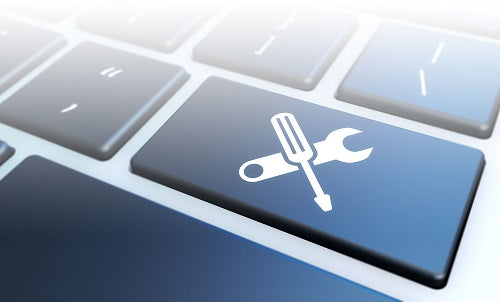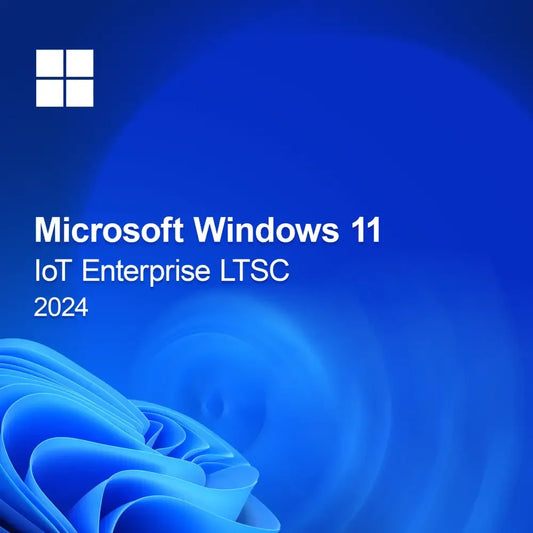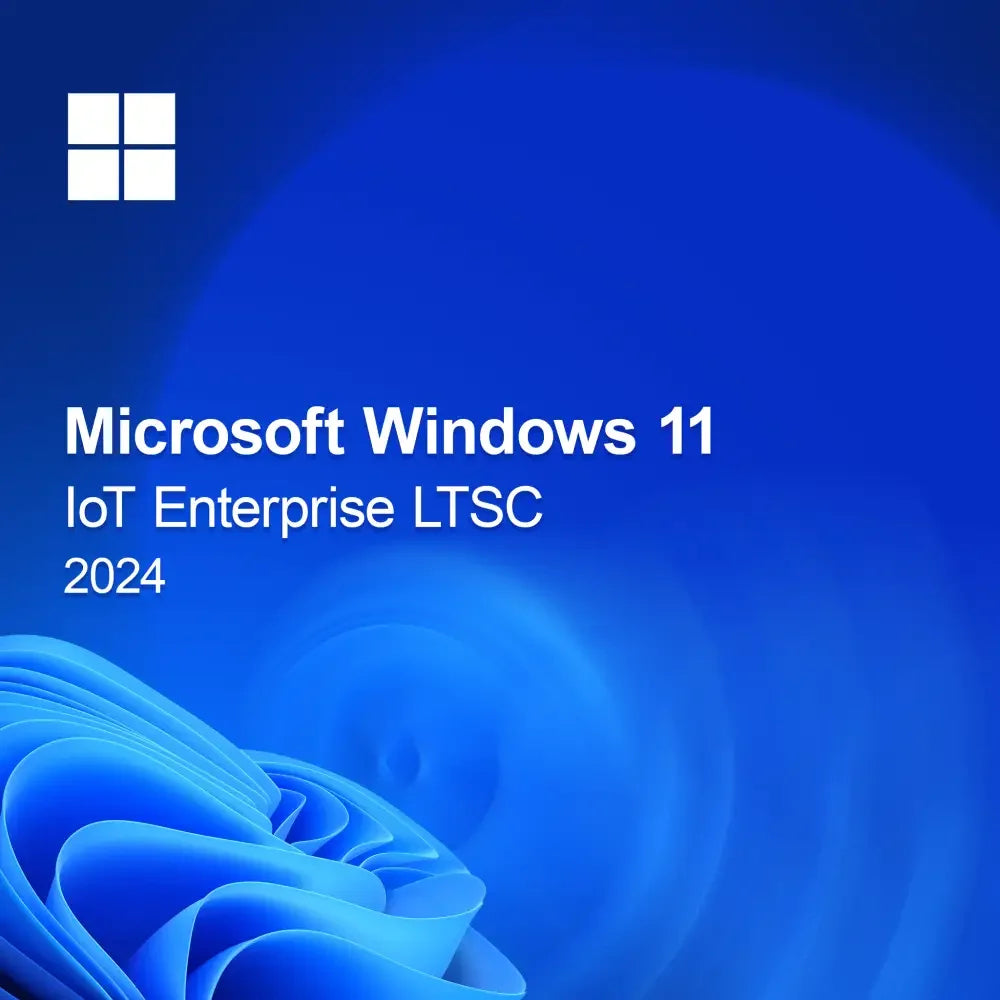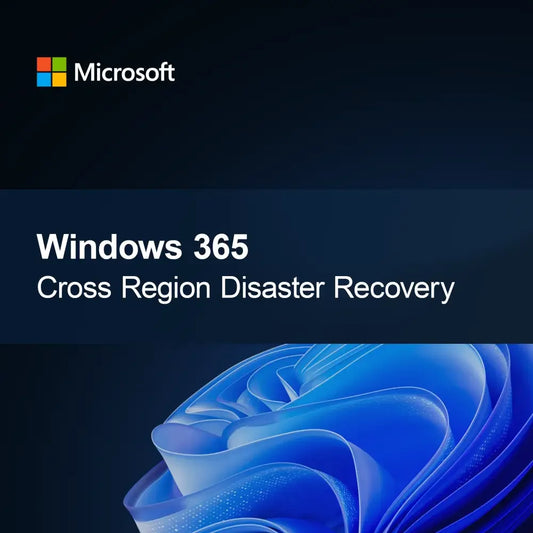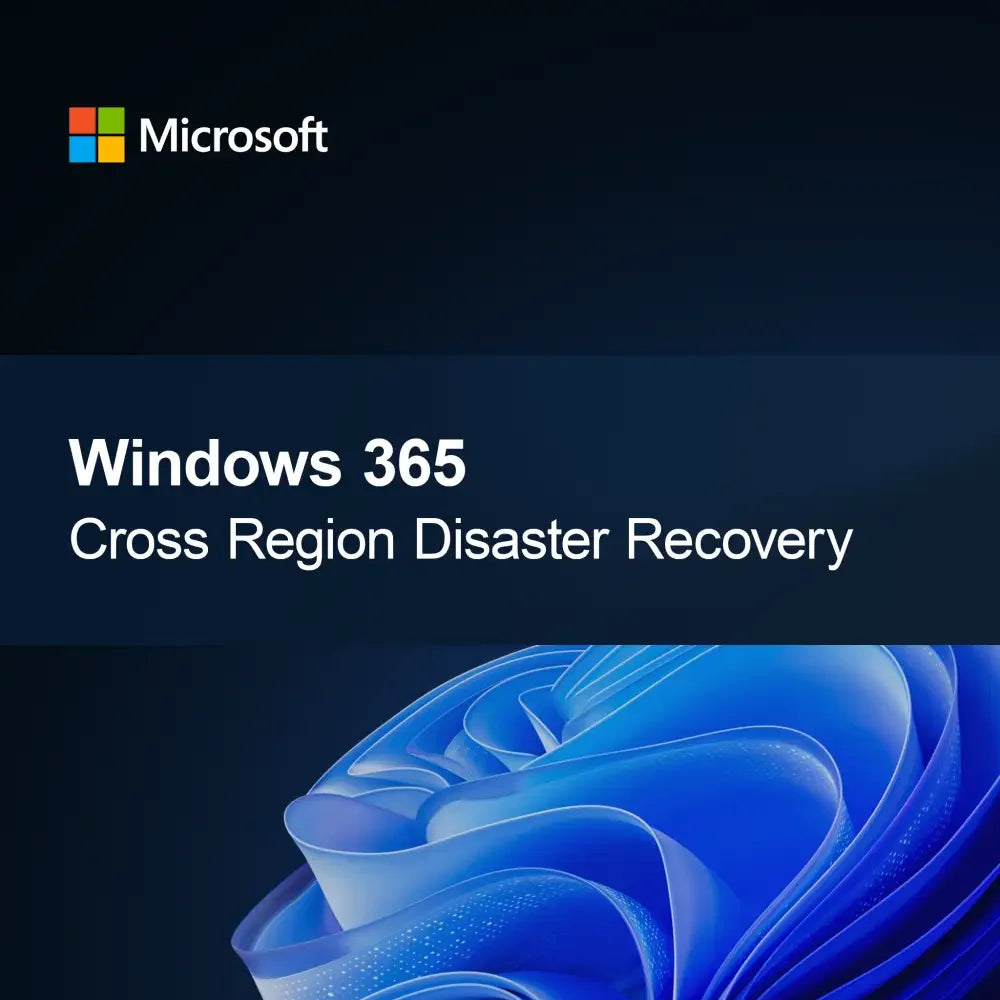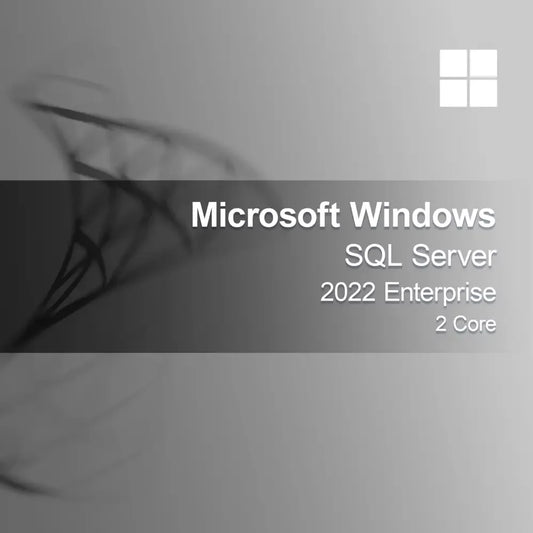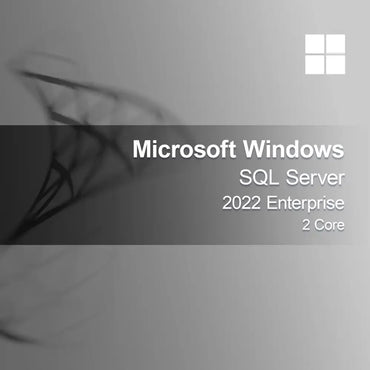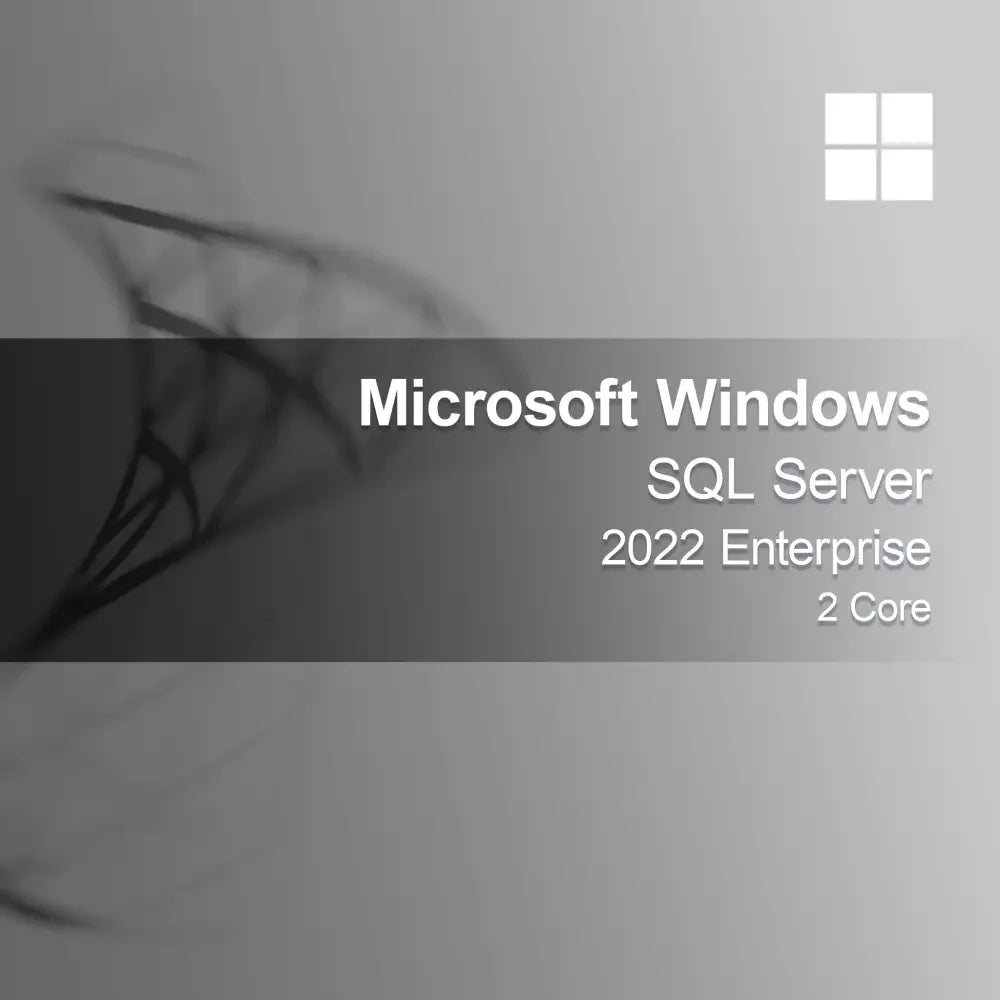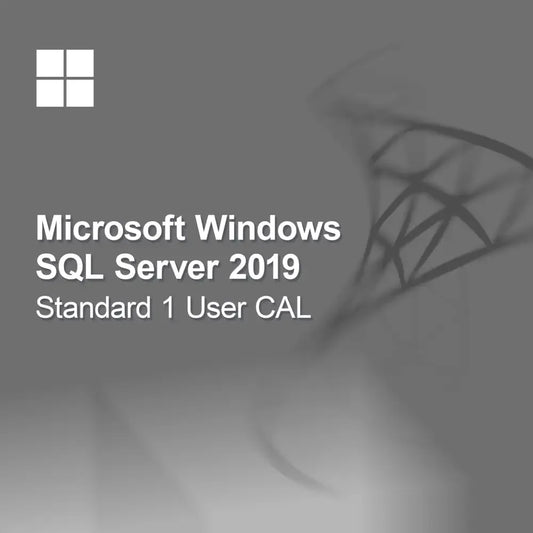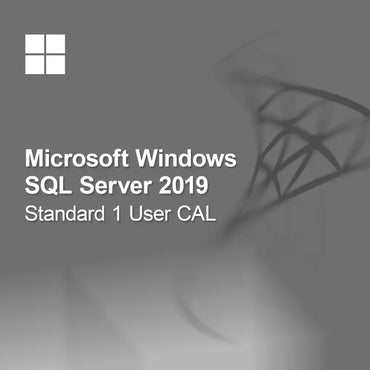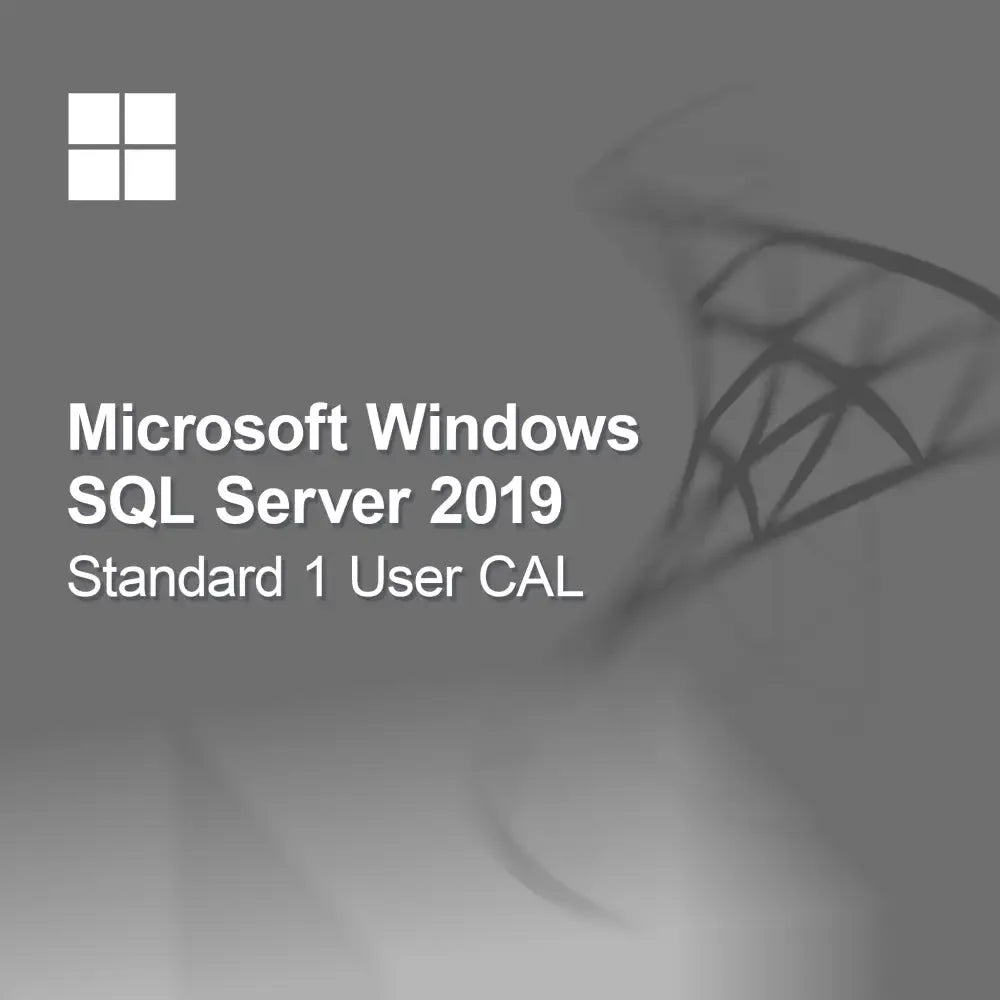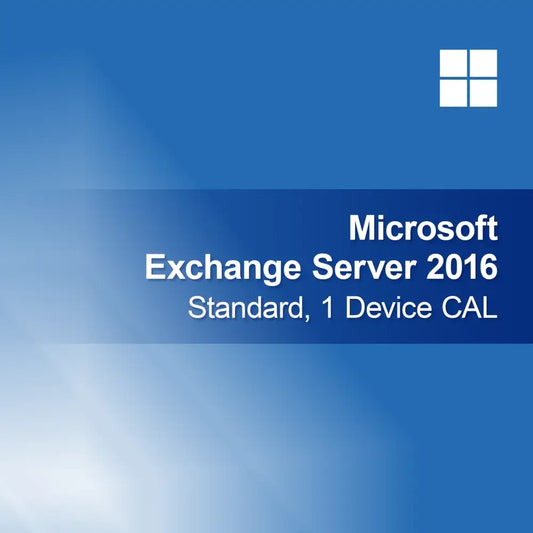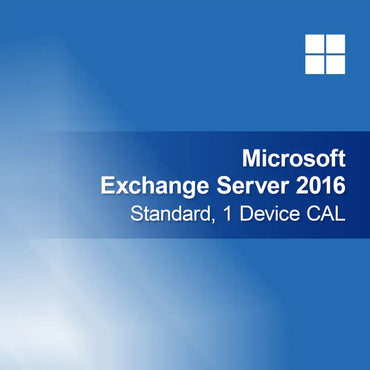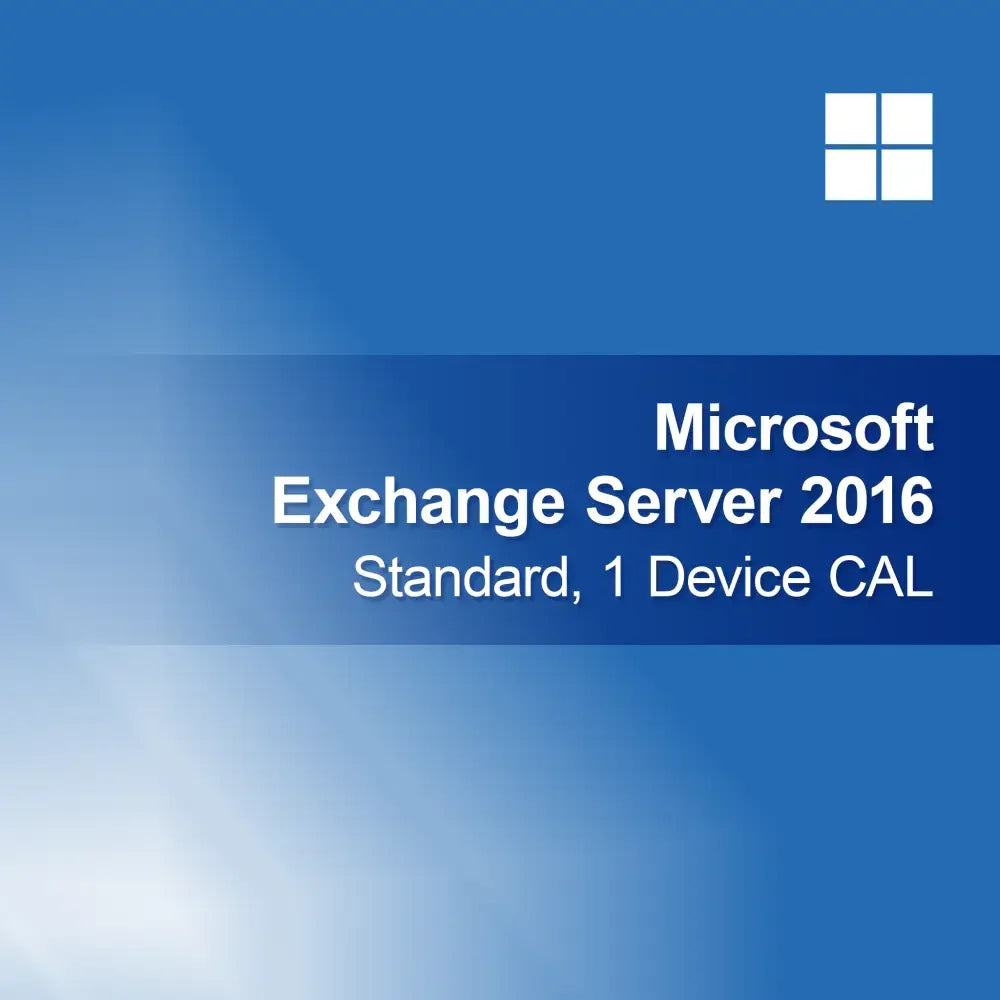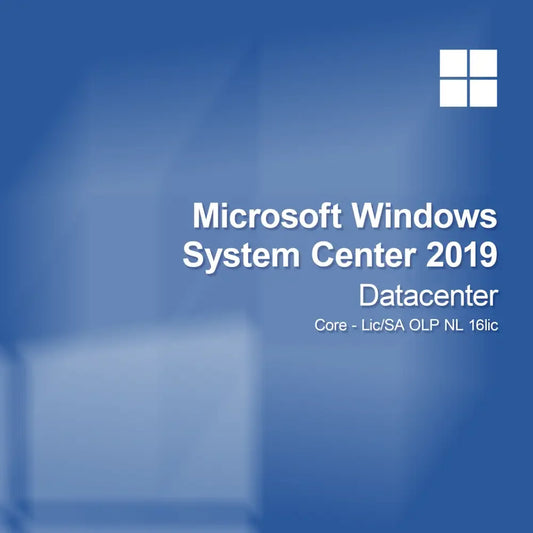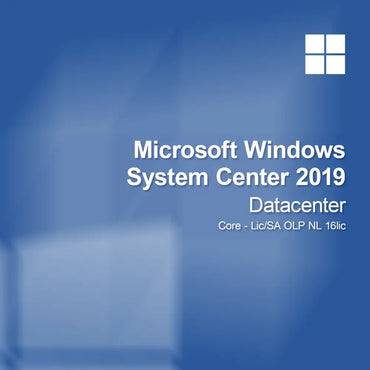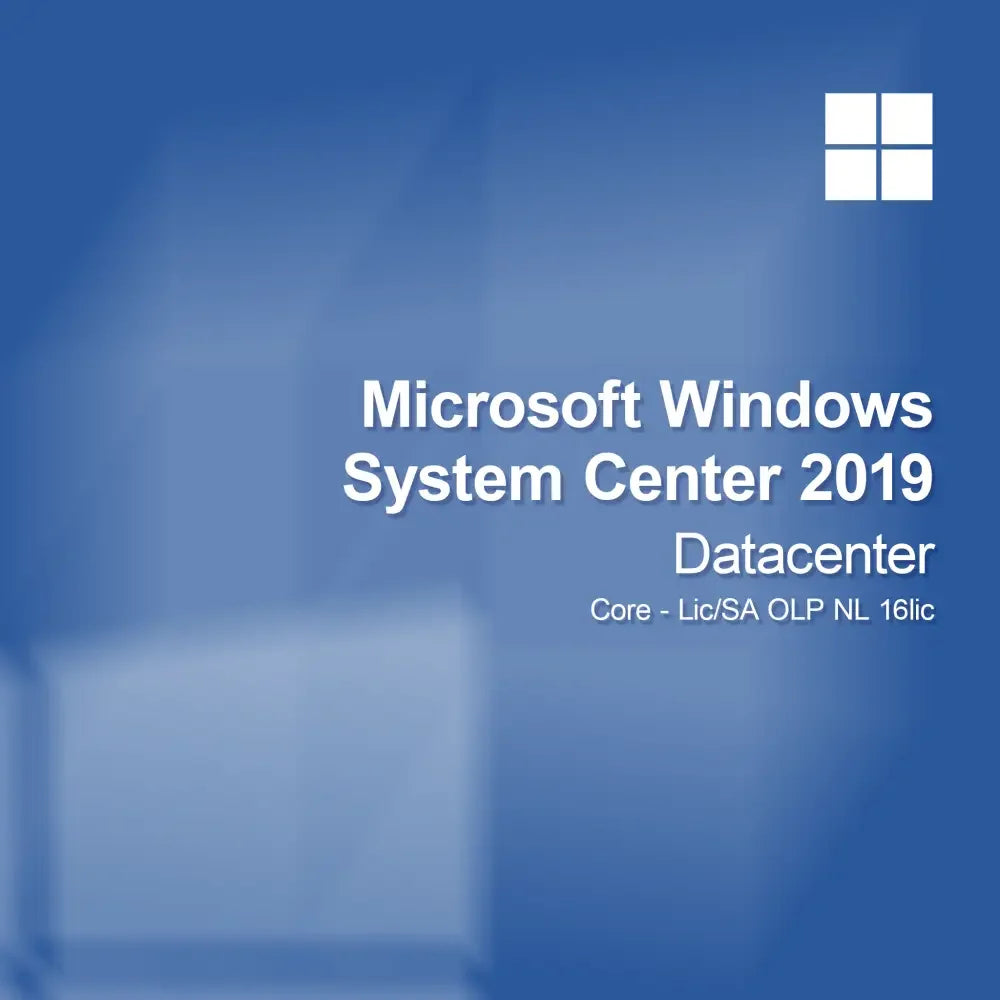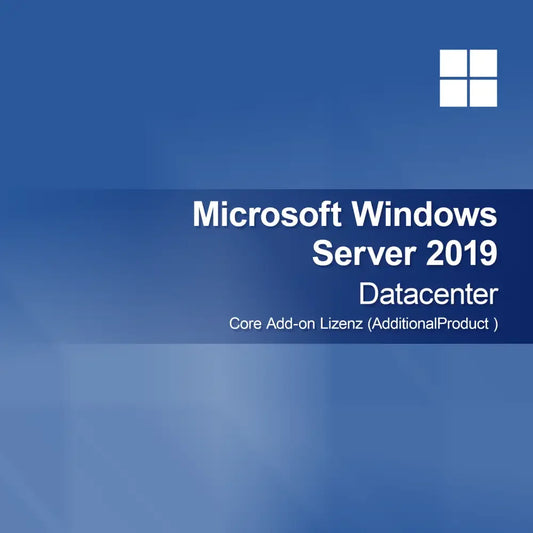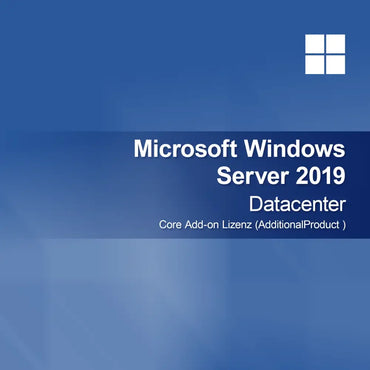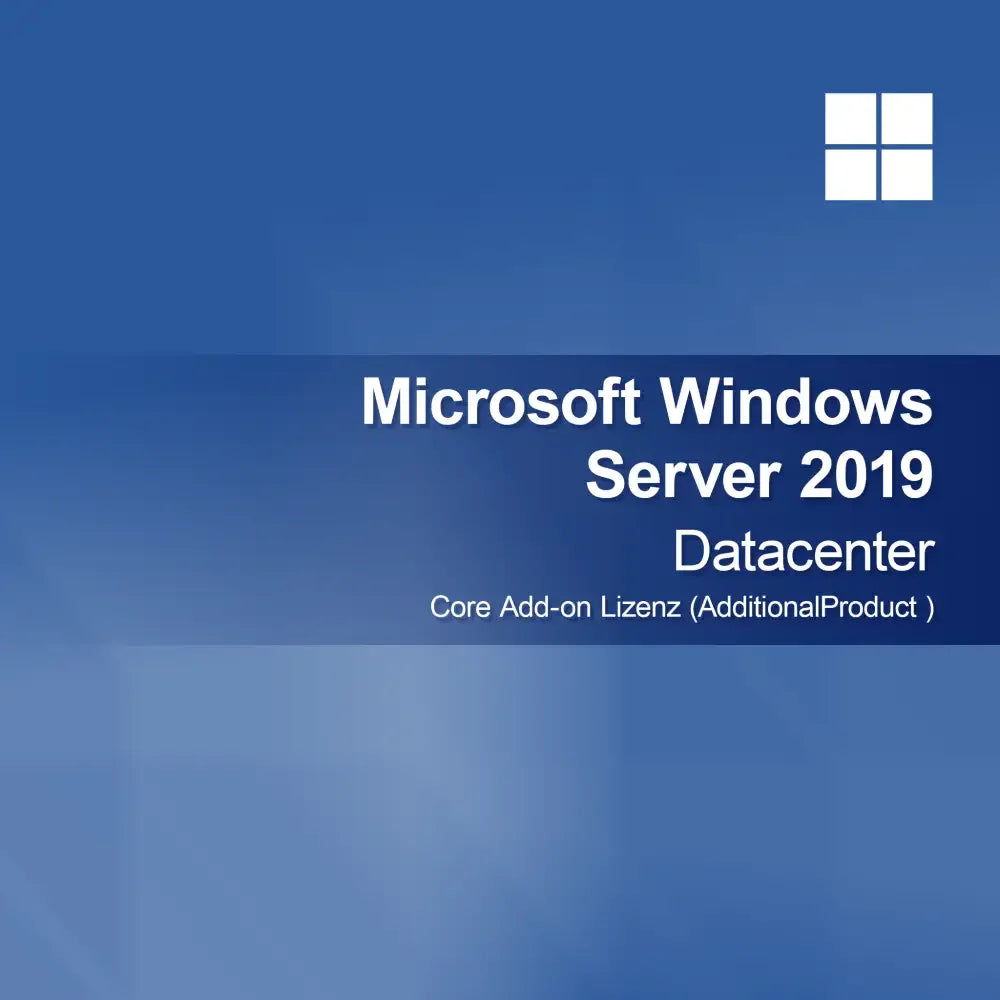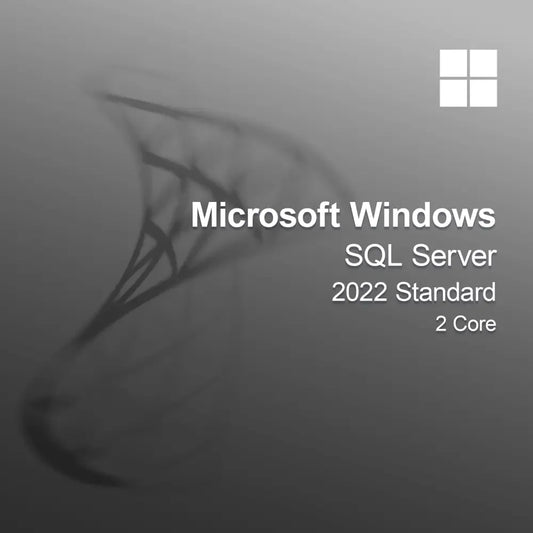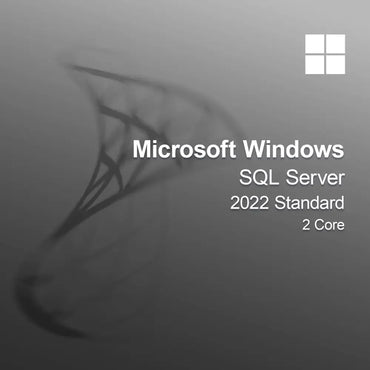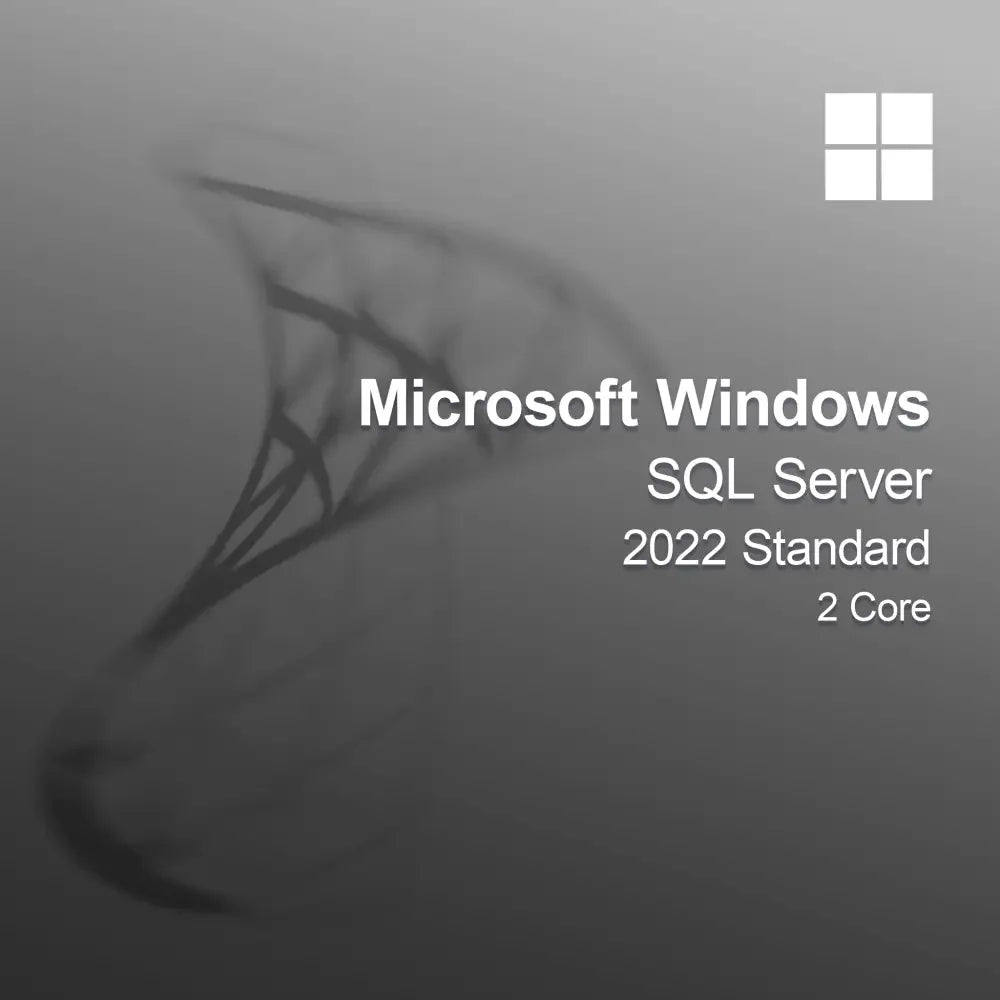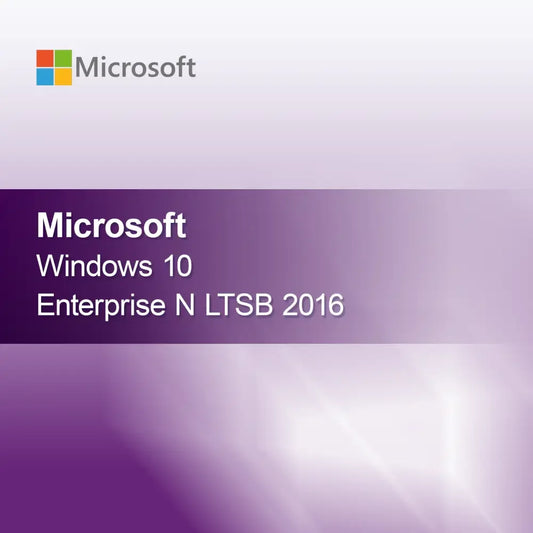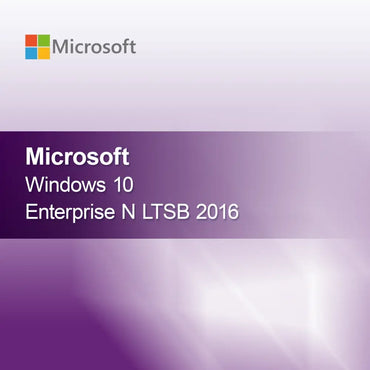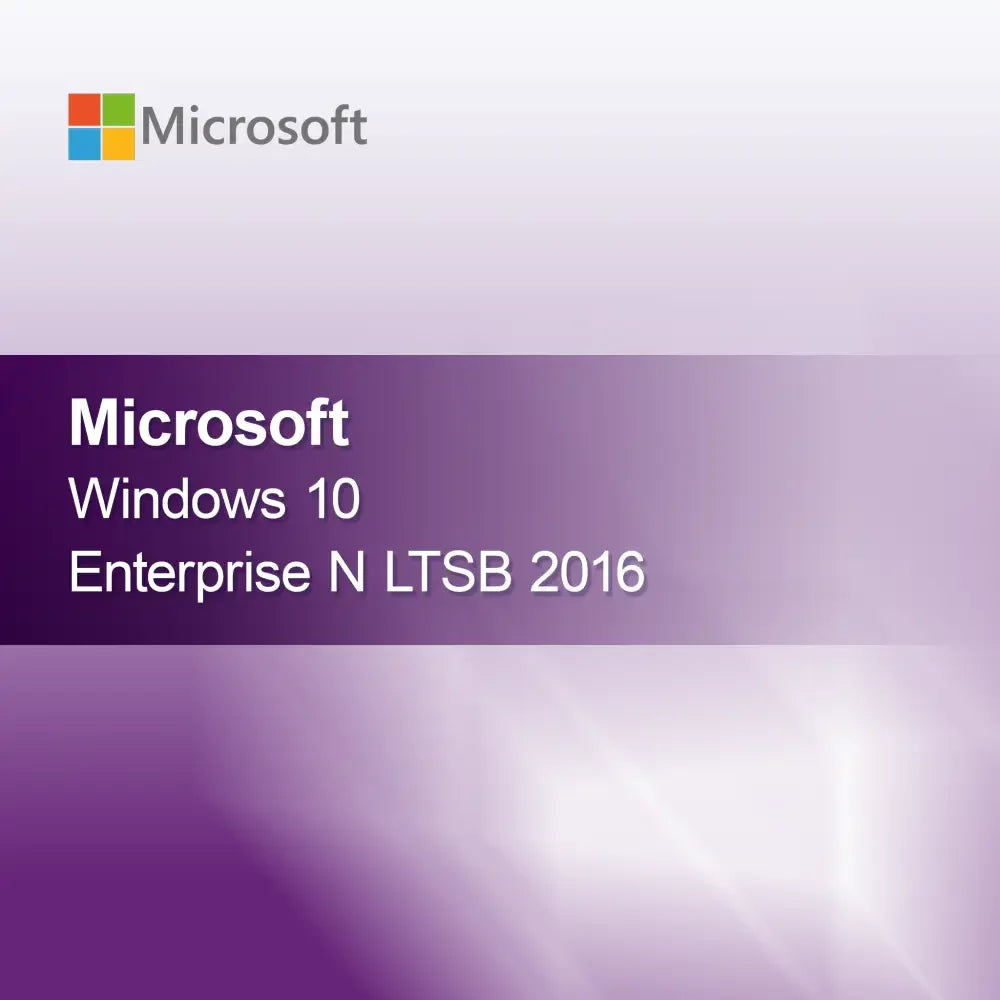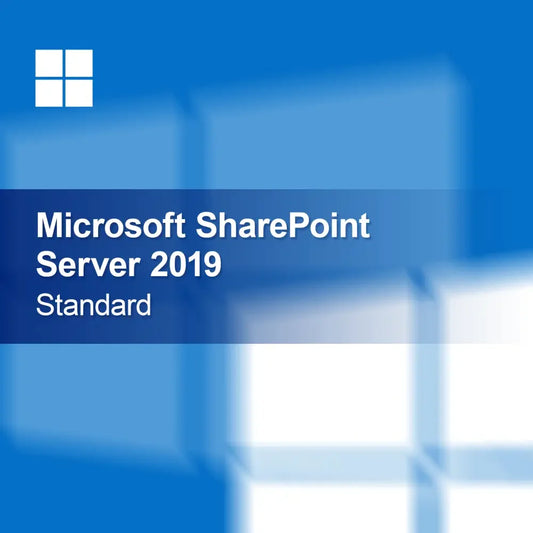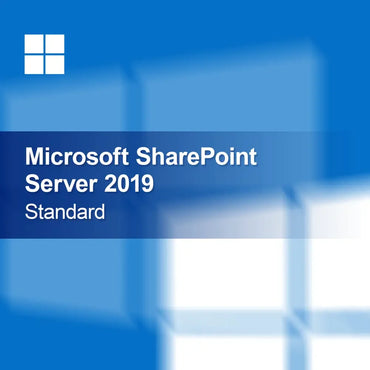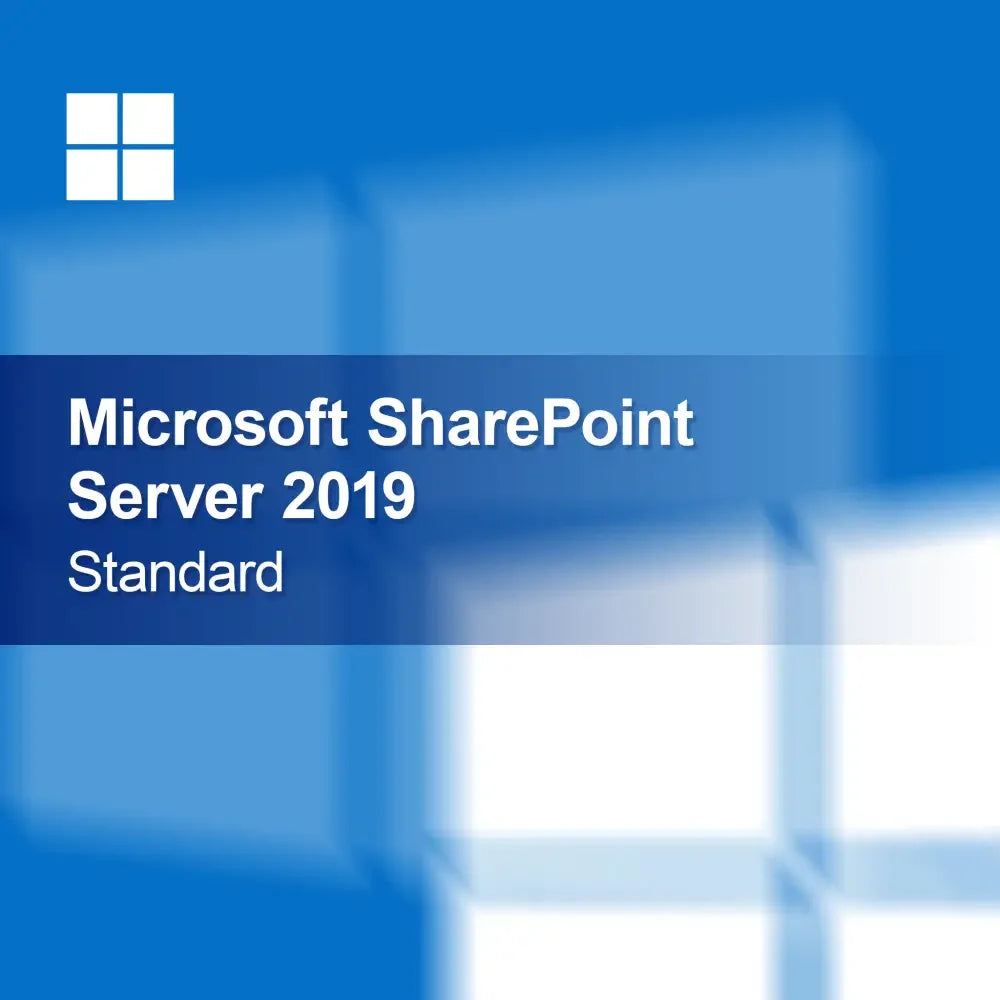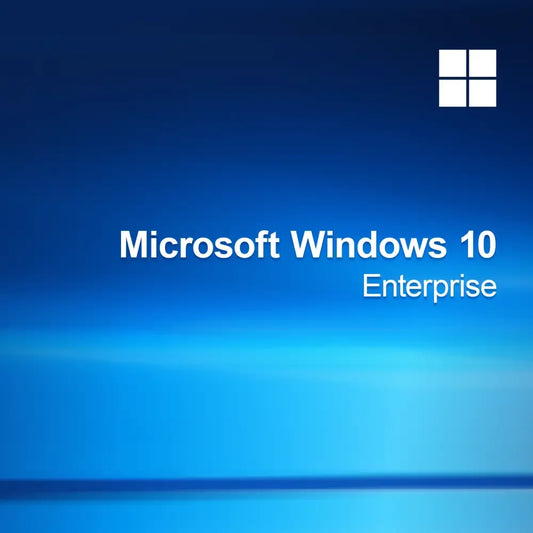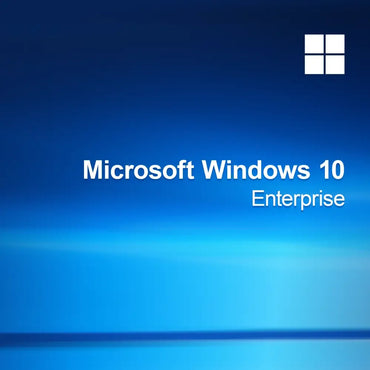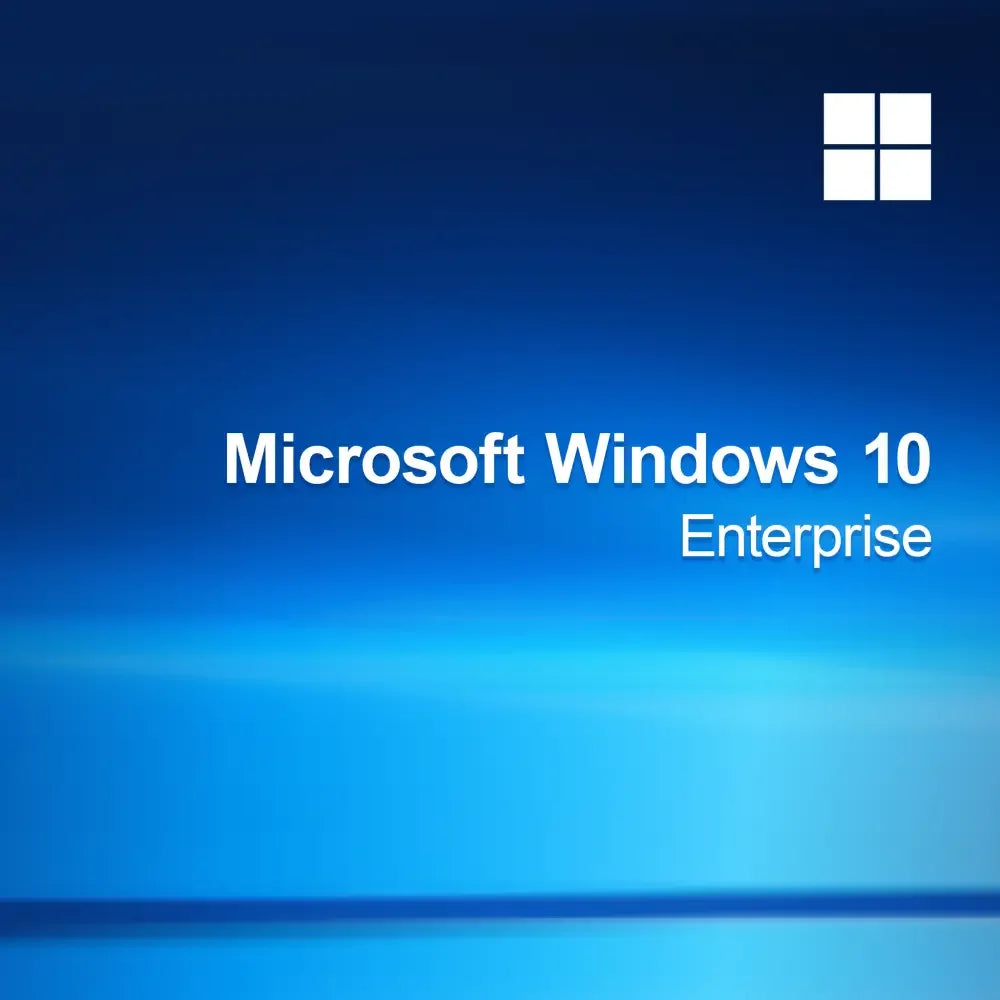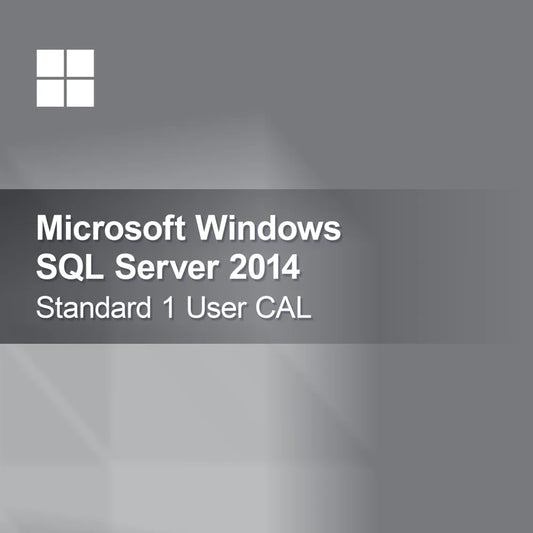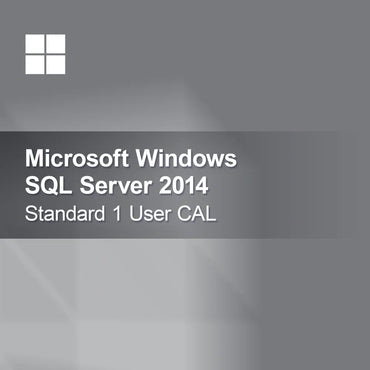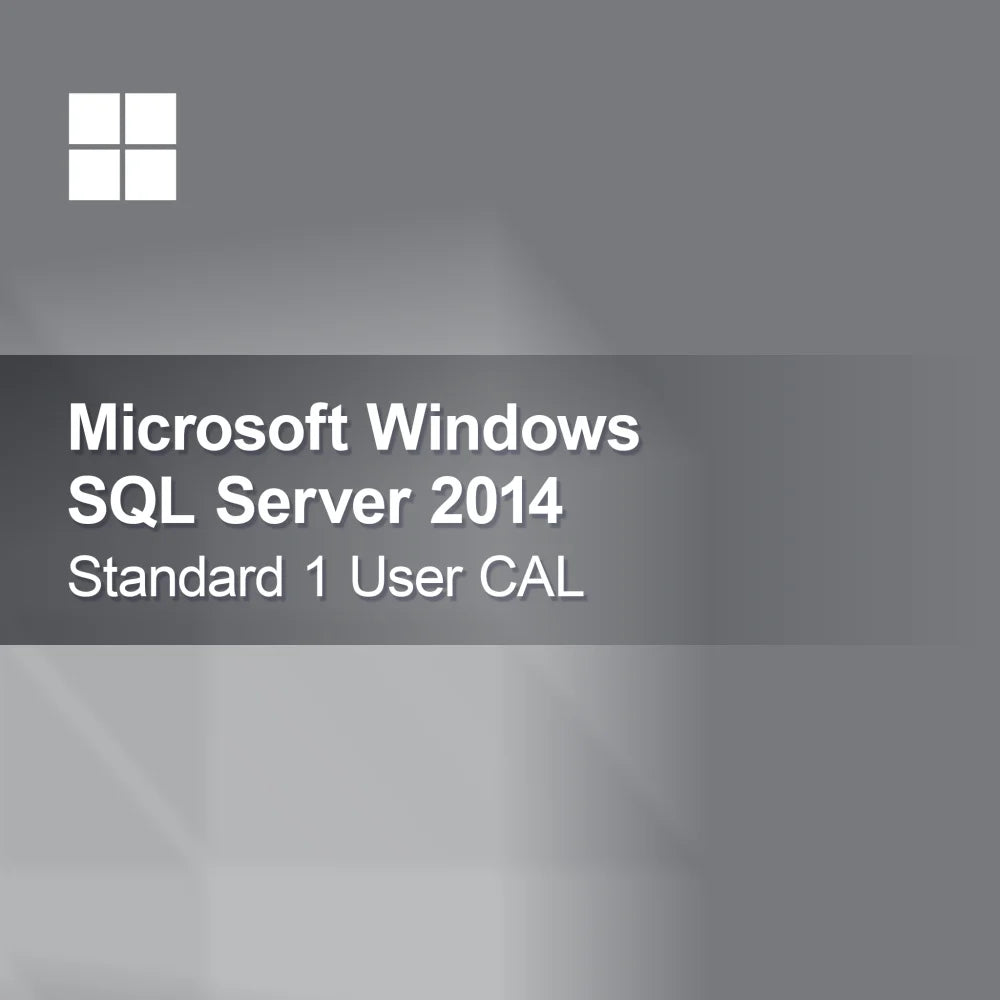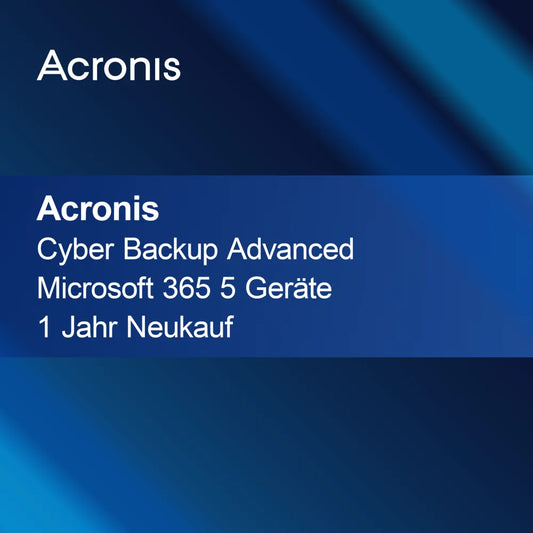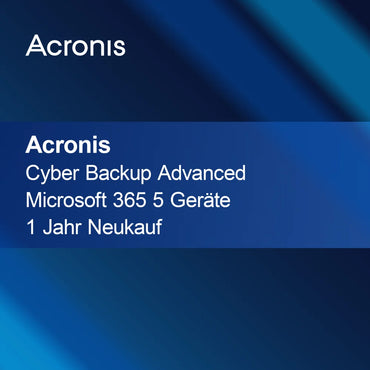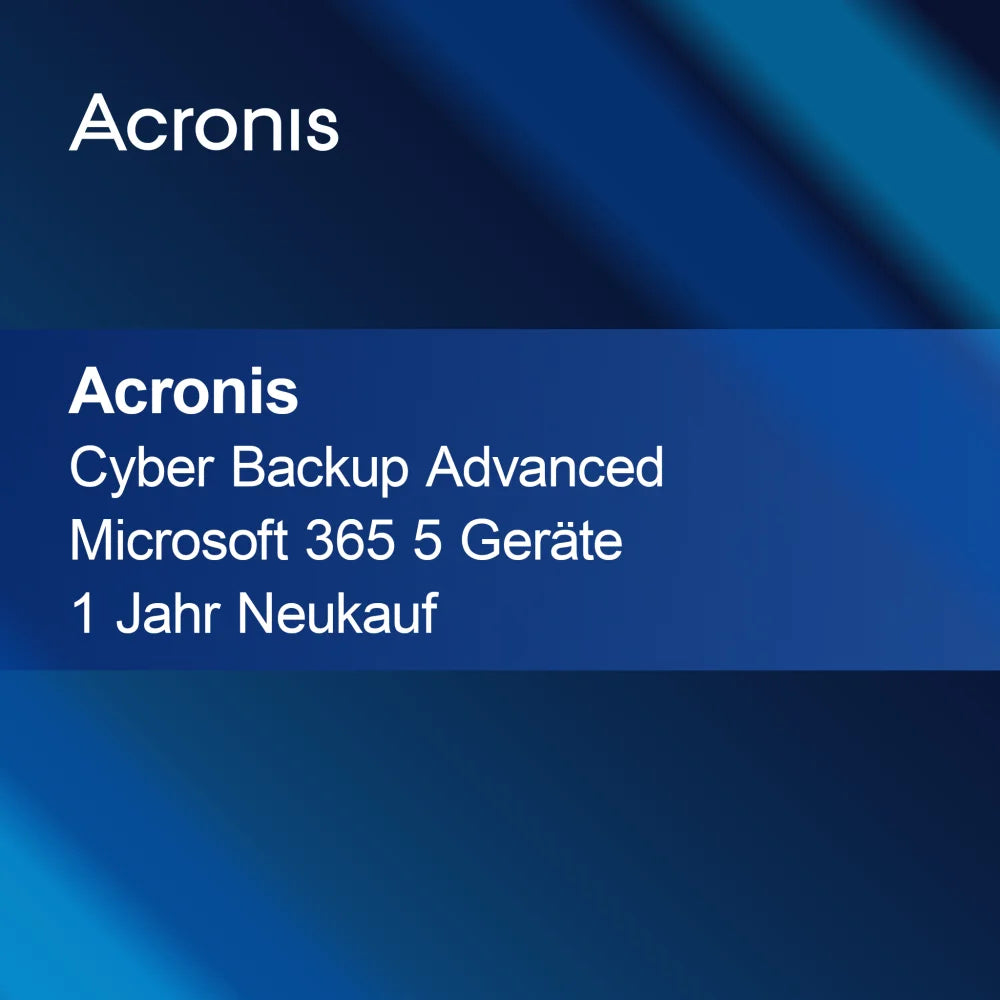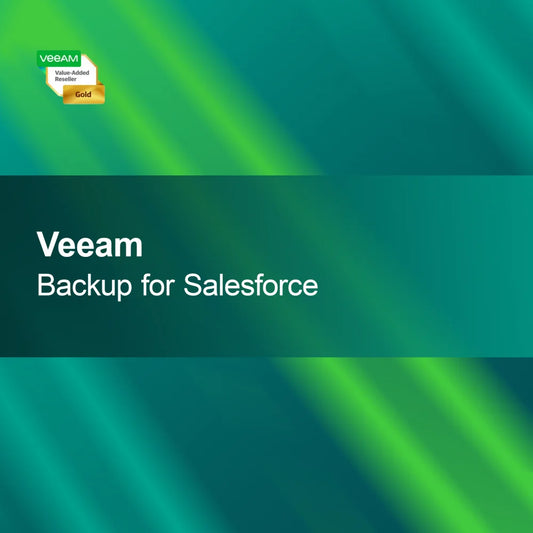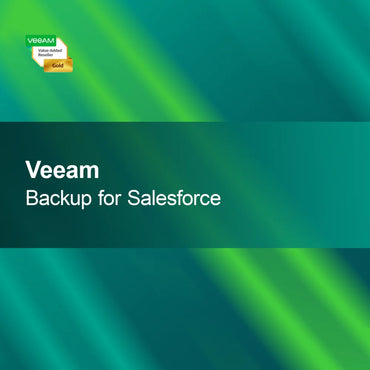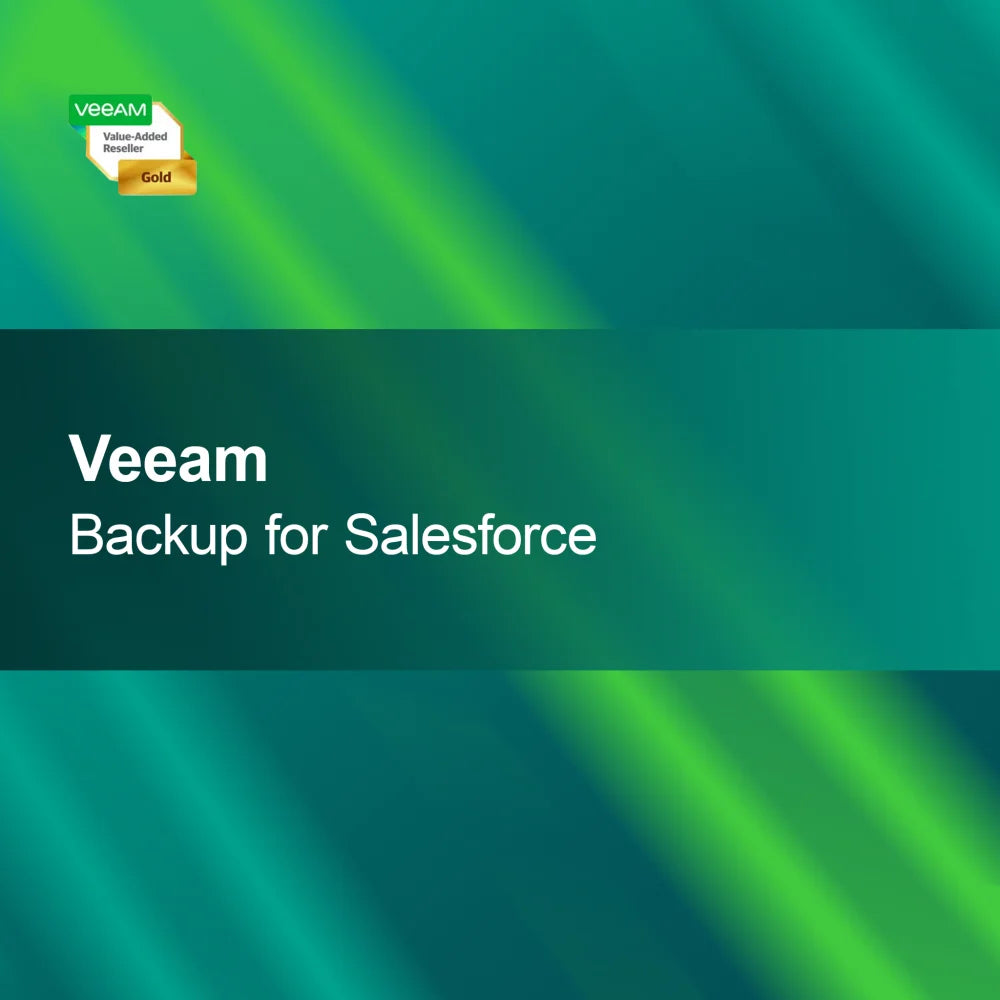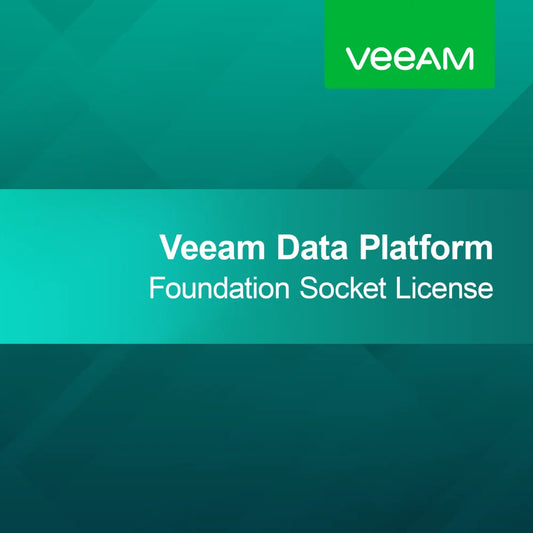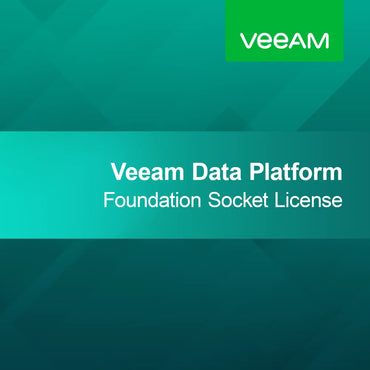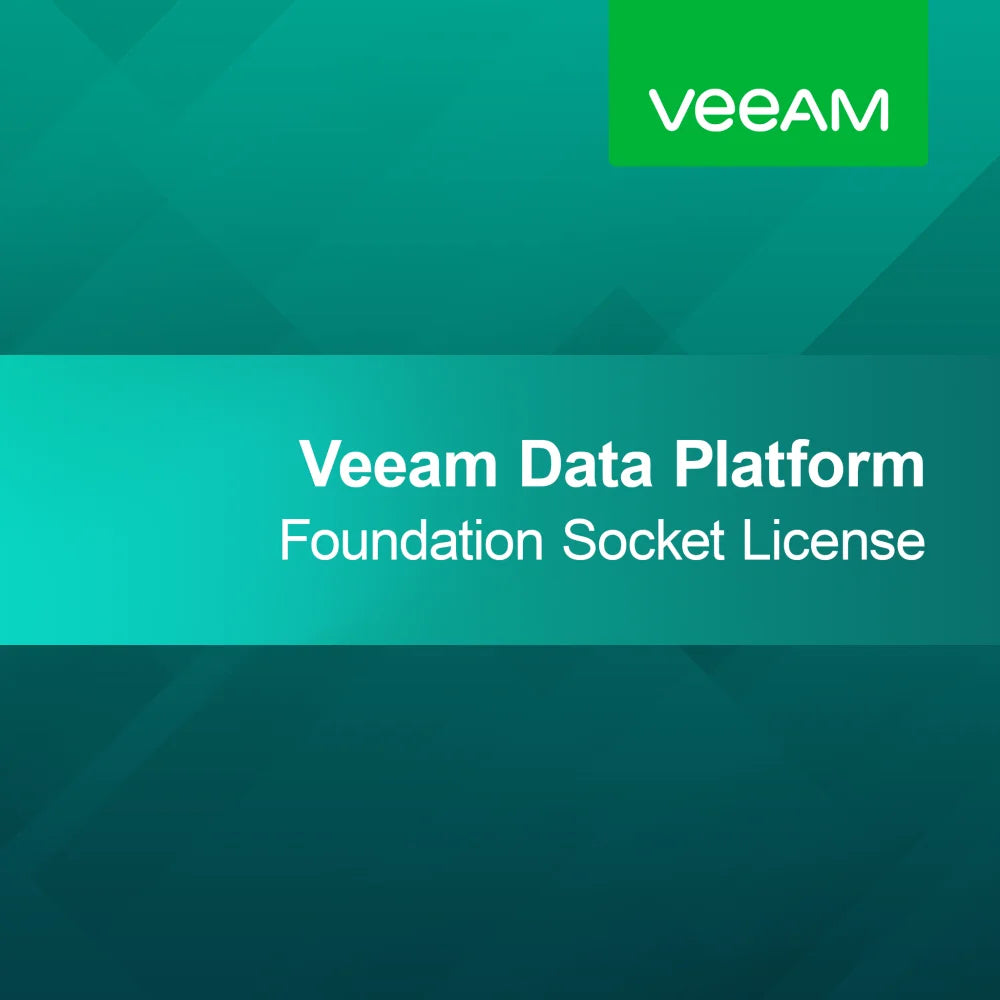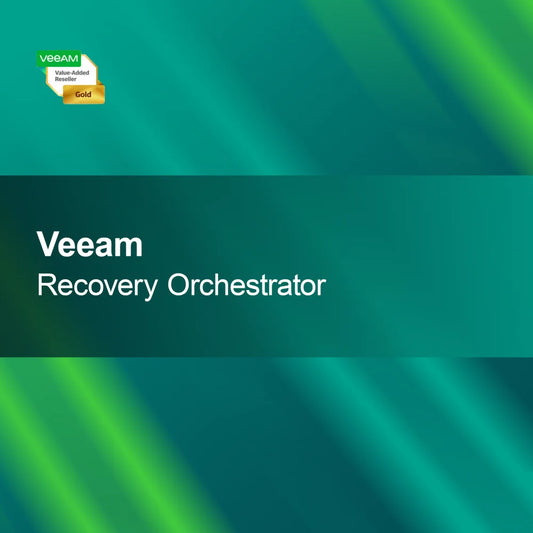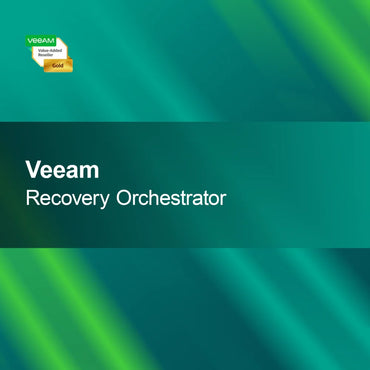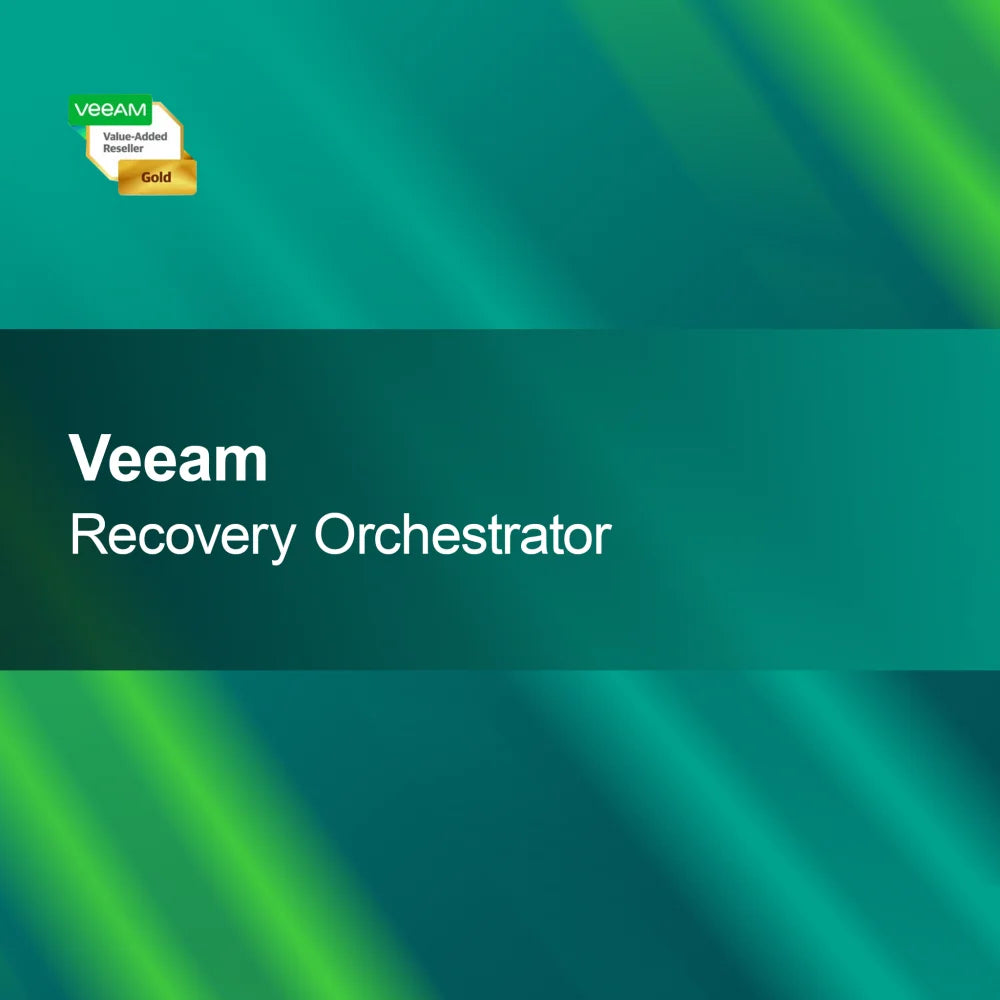-
Microsoft Windows 11 IoT Enterprise LTSC 2024
Regular price €209,95Sale price €209,95 Regular priceUnit price perMicrosoft Windows 11 IoT Enterprise LTSC 2024 With the license key for Microsoft Windows 11 IoT Enterprise LTSC 2024, you get a robust and powerful IoT...
-
Windows 365 Cross Region Disaster Recovery
Regular price €61,95Sale price €61,95 Regular priceUnit price perWindows 365 Cross Region Disaster Recovery With Windows 365 Cross Region Disaster Recovery, you reliably secure your cloud environment and increase the availability of your data...
-
Microsoft SQL Server 2022 Enterprise 2 Core
Regular price €6.499,95Sale price €6.499,95 Regular priceUnit price perMicrosoft SQL Server 2022 Enterprise 2 Core With the license key for Microsoft SQL Server 2022 Enterprise 2 Core, you get a powerful and reliable database...
-
Microsoft SQL Server 2019 Standard 1 User CAL
Regular price €97,95Sale price €97,95 Regular priceUnit price perMicrosoft SQL Server 2019 Standard 1 User CAL With the license key for Microsoft SQL Server 2019 Standard 1 User CAL, you get a powerful and...
-
Microsoft Exchange Server 2016 Standard, 1 Device CAL
Regular price €21,95Sale price €21,95 Regular priceUnit price perMicrosoft Exchange Server 2016 Standard, 1 Device CAL With the license key for Microsoft Exchange Server 2016 Standard, 1 Device CAL, you get a reliable and...
-
System Center 2019 Datacenter Core - Lic/SA OLP NL 16lic
Regular price €2.989,95Sale price €2.989,95 Regular priceUnit price perSystem Center 2019 Datacenter Core - Lic/SA OLP NL 16lic With the license key for System Center 2019 Datacenter Core, you get a powerful management platform...
-
Microsoft Windows Server 2019 Datacenter - Core Add-on License (AdditionalProduct )
Regular price From €389,95Sale price From €389,95 Regular priceUnit price perMicrosoft Windows Server 2019 Datacenter - Core Add-on License With the Microsoft Windows Server 2019 Datacenter - Core Add-on license key, you get a powerful and...
-
Microsoft SQL Server 2022 Standard 2 Core
Regular price €2.987,95Sale price €2.987,95 Regular priceUnit price perMicrosoft SQL Server 2022 Standard 2 Core With the license key for Microsoft SQL Server 2022 Standard 2 Core, you get a powerful and reliable database...
-
Microsoft Windows 10 Enterprise N LTSB 2016
Regular price €169,95Sale price €169,95 Regular priceUnit price perMicrosoft Windows 10 Enterprise N LTSB 2016 Activate Microsoft Windows 10 Enterprise N LTSB 2016 quickly and easily with this license key. Enjoy a stable and...
-
Microsoft SharePoint Server 2019 Standard
Regular price €4.349,95Sale price €4.349,95 Regular priceUnit price perMicrosoft SharePoint Server 2019 Standard With the license key for Microsoft SharePoint Server 2019 Standard, you get a powerful platform specifically designed for collaboration in businesses....
-
Microsoft Windows 10 Enterprise
Regular price €59,95Sale price €59,95 Regular priceUnit price perMicrosoft Windows 10 Enterprise With the license key for Microsoft Windows 10 Enterprise, you get a powerful and stable operating system that is specifically tailored to...
-
Microsoft SQL Server 2014 Standard 1 User CAL
Regular price €68,95Sale price €68,95 Regular priceUnit price perMicrosoft SQL Server 2014 Standard 1 User CAL With the license key for Microsoft SQL Server 2014 Standard 1 User CAL, you get a reliable and...
Server & Client
What are servers and clients?
Servers and clients are fundamental components in network architecture. A server is a powerful computer that provides resources, data, or services, while clients are the devices that access these resources. This relationship enables efficient sharing and processing of information. In many networks, multiple clients work simultaneously with one or more servers, which increases efficiency and flexibility.
What types of servers are there?
There are different types of servers, each fulfilling specific functions. Web servers host websites and deliver content to clients, while database servers store and manage data. Application servers run specific applications and provide them to clients. Additionally, there are mail servers that manage emails and file servers that enable access to files. The choice of the right server type depends on your network's requirements.
How do servers and clients communicate with each other?
Communication between servers and clients usually takes place over a network protocol, such as HTTP for web applications or FTP for file transfers. Clients send requests to the server, which processes these requests and sends back the corresponding responses. This interaction can occur in real time, enabling dynamic resource usage. A stable network connection is crucial for smooth communication.
What are the advantages of server-client architectures?
Server-client architectures offer numerous advantages, including centralized data management, improved security, and easier maintenance. By centrally storing data on servers, clients can efficiently access information without having to manage local copies. Additionally, security measures can be implemented at the server level to protect data. This architecture also allows for easy scaling, as new clients can be added without major changes to the server.
How do I choose the right server for my needs?
When choosing a server, you should consider several factors, including the type of applications you want to run, the number of clients that will access it, and the required performance. Also consider whether you prefer a physical server or a cloud server. Cloud servers offer flexibility and scalability, while physical servers provide more control over the hardware. A thorough analysis of your requirements will help you make the best decision.
How can I ensure security in a server-client network?
Security in a server-client network can be enhanced through various measures. These include implementing firewalls, using encryption technologies, and regular software updates. Additionally, access rights should be carefully managed to ensure that only authorized users can access sensitive data. A comprehensive security strategy that includes both physical and digital security measures is crucial for protecting your data.
What role do servers play in the cloud?
In the cloud, servers play a central role as they provide the infrastructure required for storing and processing data. Cloud servers are virtualized servers accessible via the internet that enable flexible resource usage. This means that companies only pay for the resources they actually use and can scale their capacities according to demand. Cloud servers also offer advantages such as high availability and easy maintenance.
